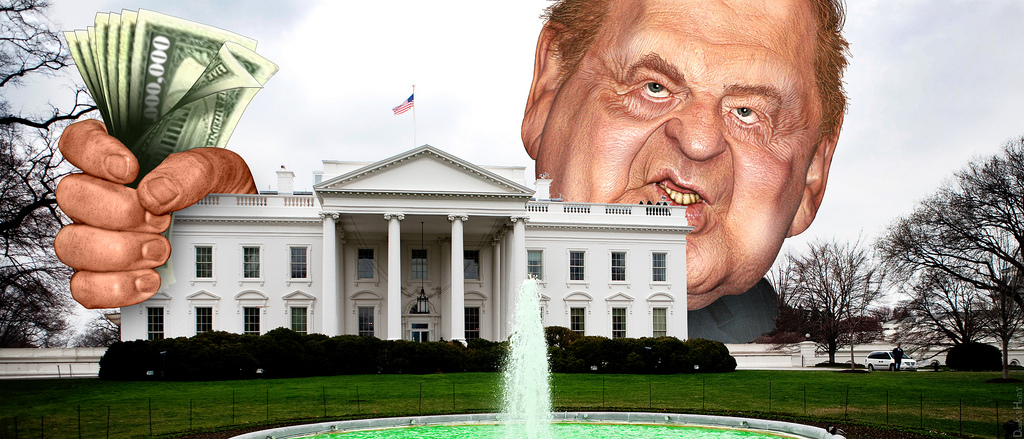Is it legal for a private donor to fund a U.S. embassy? What are the larger implications for the privatization of U.S. foreign policy?
Phyllis Bennis, a project director at the Institute for Policy Studies, recently appeared on the Real News Network to discuss an offer by the right-wing, pro-Israel hardliner – and billionaire GOP donor – Sheldon Adelson to privately fund the controversial new U.S. embassy in Jerusalem.
“This is a move that’s now designed to undercut the fear that many have raised about the enormous cost of building a new embassy in Jerusalem,” said Bennis.
Managing costs is one thing, but looking to private donors to fund government assets in the realm of foreign policy is another.
A former State Department official, who has experience managing the purchase of land for embassy building purposes, recently told Bennis that she had “never heard of” a privately funded embassy.
According to Bennis, allowing Adelson to fund an embassy in Jerusalem is very significant, particularly “at the symbolic level.” She went on to suggest that the move speaks to the “willingness of the Trump administration… to make these reckless policy decisions” – in this case, undercutting the Israeli-Palestinian peace process by unilaterally moving the embassy – “solely in the interests of wealthy donors and their own constituencies.”
More troubling still, the move Adelson’s offering to finance is at odds with international law.
According to Bennis, there is “no U.S. law that would prohibit a U.S. embassy from being anywhere.
In fact, there was actually a law passed in the U.S. in 1995, “signed by President Clinton, that mandated the move of the embassy to Jerusalem,” said Bennis. The law, though, has a provision that allows for the president to put off its implementation. This has been common practice since its inception, on the grounds that “it would be [a] disastrous” policy.
“Under international law,” noted Bennis, “of course, it’s illegal altogether,” since the land where the proposed embassy would be built is contested.
Bennis now says she’s waiting to see whether “the State Department will acknowledge that it’s [illegal], or claim that it’s legal when its clearly not.”
